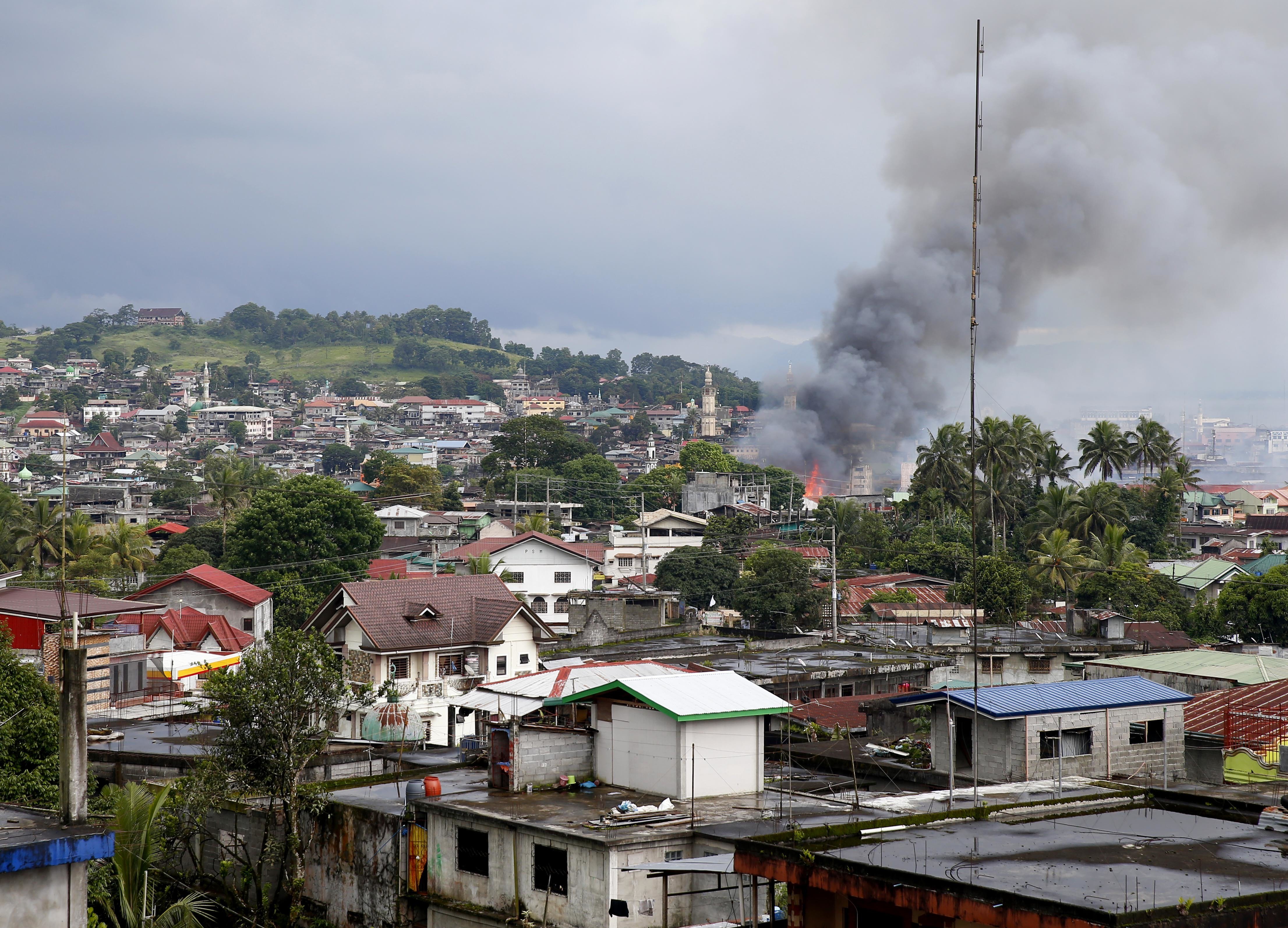Neda: Rehab of areas outside Marawi’s ground zero to cost P26.1B this year

FILE- The rehabilitation of areas outside the so-called “ground zero” of fighting between government forces and Islamic State supporters in Marawi City last year will entail funding of P26.2 billion.
The rehabilitation of areas outside the so-called “ground zero” of fighting between government forces and Islamic State supporters in Marawi City last year will entail funding of P26.2 billion during the first year of reconstruction activities, the state planning agency National Economic and Development Authority said Monday.
In a press conference, Neda Undersecretary Adoracion M. Navarro expressed confidence that even as only P10 billion had been allotted under the 2018 national budget for the Bangon Marawi Comprehensive Rehabilitation and Recovery Program (BMCRRP), the government can tap other sources of financing, including grants from foreign countries.
The BMCRRP covers the areas outside ground zero, while the center of last year’s conflict will be developed by the Bagong Marawi Consortium–comprised of five Chinese firms and four local companies–if its proposal wins the Swiss challenge to be held this week.
For this year, Neda estimated for the BMCRRP an investment requirement of P8.8 billion for physical infrastructure programs, projects and activities; P5.3 billion for social services; P5.1 billion for housing and settlement; P4.9 billion for livelihood and business development; P1.1 billion for local governance and peacebuilding; as well as P831 million for land resource management.
Of the funding requirement for 2018, P13.8 billion will be sourced from the National Disaster Risk Reduction and Management Fund; P4.1 billion from agencies’ regular budgets; P1.5 billion from the Autonomous Region in Muslim Mindanao’s budget; P66 million from local government units; P2.1 billion to be co-shared by the government and development partners as well as the private sector; P4.4 billion from purely non-government sources such as development partners and the private sector; and P227 million from yet to be determined sources.
Navarro said that besides the P10 billion already in this year’s budget, the government can also tap the provisional P5 billion under the unprogrammed appropriations in the 2018 general appropriations act.
Excess revenues from the bureaus of Internal Revenue and of Customs can also be utilized, Navarro added.
Lately, the country’s two biggest revenue agencies have been increasing their respective tax takes and exceeding targets partly as a result of the higher excise taxes under the Tax Reform for Acceleration and Inclusion (TRAIN) Act.
For instance, in the case of the BIR, it last week reported posting net revenues of P12.5 billion from the TRAIN Law during its first three months of implementation on the back of a surge in collections of cigarette excise taxes.
For the government’s part, Navarro said that the economic managers will ensure funding for the investment requirements for this year.
One upcoming source of financing will be the planned issuance of up to P30 billion in “Marawi bonds,” the Neda official said.
As for the private sector, they were “very much committed” and “already have commitments which were brought to the government,” specifically by the Philippine Disaster Resilience Foundation, she said.
Official development assistance was also already received from Australia, China and Japan, she added.
In the case of Japan, it this month provided a P970-million grant to rebuild roads on top of an earlier P763-million provision of equipment and machinery.
From China, an economic and technical cooperation grant worth 150 million renminbi or about P1.23 billion was received by the government.
Australia also provided 24 million Australian dollars in humanitarian assistance.
From multilateral lenders, Navarro said that the World Bank pledged an undetermined amount of technical support, while the Manila-based Asian Development Bank was looking into a possible realignment of ODA.
Navarro said all of the programs, projects and activities to be implemented this year are “priorities,” but implementation “depends on project readiness if the requisites are there” as well as the “absorptive capacity and readiness of agencies to implement the projects.”
For the period 2018 to 2022, a total of 892 programs, projects and activities under the BMCRRP will require funding totaling P53.4 billion.
In all, 252 physical infrastructure projects, 72 for social services, 27 for housing and settlement, 335 for livelihood and business development, 139 for local governance and peacebuilding, as well as 67 for land resource management needed to be financed starting this year until 2022.